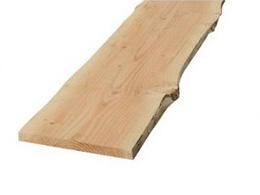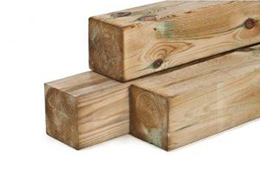Garden wood

Garden wood
Ordering garden wood online
Partly because of COVID-19, online garden wood ordering has increased enormously. Not only have people started to spend more money on their garden, but they have also experienced how nice it is to buy garden wood online. So for this you do not necessarily have to go to the garden center. From the comfort of your armchair, projects can be prepared and all the necessary materials gathered, without the hustle and bustle around you.Buy A-quality garden wood with attractive discounts
Just before the pandemic we had just revamped our webshop, focusing on a positive user experience. Extra attention was paid to making the structure as logical as possible, so that all the garden wood and other materials are easy to find. In addition, we are also known for our attractive prices and of course we want to keep it that way! All the garden wood is bought in bulk, allowing us to share the discounts we have obtained with you. The result: A large offer, lots of stock and A-quality garden wood with nice discounts calculated into the price!Garden wood delivered throughout the Netherlands and Flanders
Previously, we delivered all garden wood with our own delivery service. Due to increased demand, our own delivery service now delivers in South Holland and the delivery of garden wood in the rest of the Netherlands and also in Flanders is outsourced. The big advantage of this is that we can deliver garden wood faster and in more places. Also large quantities! You can calculate the delivery costs directly online. Would you prefer free pickup? That is also possible! Besides the simplicity of ordering your garden wood online, you can also choose the convenience of having everything delivered to your location. Large or small projects do not matter to us. We do all the heavy lifting and make sure your entire order is delivered to the site of your project! Not only garden wood and hardware, but also, for example, everything for paving and potting compost or garden soil.We keep working on our online shop!
Of course, a webshop is never finished. That is why we keep working to make ordering your garden wood online as optimal as possible. Do you have any tips or good ideas to improve the online experience of our webshop? Please feel free to share them with us!Frequently asked questions about garden wood
What types of garden wood does Hout Vandaag supply?
At Hout Vandaag you will find a wide range of garden wood, such as impregnated wood (often pine or spruce), hardwood, Douglas fir and scaffolding wood. In addition to wood, we also offer it in composite. We supply planks, beams, posts as well as fences, garden tiles and ready-made packages for, for example, canopies.
How can I choose the right garden wood for my project?
To choose the right wood for your project, it is important to know what properties you are looking for. Factors such as durability, appearance and budget play a role here. Do you need advice? Feel free to contact our customer service team!
What is the delivery time of the wood?
At Hout vandaag we keep a large stock. Therefore, we can deliver quickly. We aim to deliver your order within 5 working days. This applies to both the Netherlands and Belgium. Only for ready-made packages is the delivery time slightly longer. Here is the target delivery within 9 working days. Only impregnation will be slightly longer.
How durable is the garden wood that Hout Vandaag sells?
At Hout vandaag, we attach great importance to sustainability. We therefore only work with suppliers who practice responsible forest management. Many of our woods have an FSC or PEFC label, which means they come from sustainably managed forests.
How do I treat garden wood for a longer life?
Treating garden wood is important to extend its life. Use an appropriate stain, oil or paint to protect the wood from moisture, UV radiation and fungi. Make sure the wood is thoroughly dry before treating it and repeat the treatment regularly according to the manufacturer's recommendations.
How can I prevent or repair graying of garden wood?
Aging of garden wood is a natural process that results from exposure to sunlight and weathering. To prevent graying, you can treat the wood with a UV-protective stain or oil. To restore grayed wood, you can sand the wood to remove the grayed layer and then treat it with an appropriate stain or oil.
How do I prevent my garden wood from warping or shrinking?
To prevent garden wood from warping or shrinking, it is important to store, handle and maintain the wood properly. Store the wood in a dry, well-ventilated place and make sure it is not lying directly on the ground. Avoid large temperature and humidity fluctuations while storing and processing the wood. Ensure proper ventilation and drainage when placing the wood in your garden and treat it regularly with an appropriate stain or oil to minimize moisture absorption.
Can I use garden wood in a damp environment, such as near a pond?
Garden wood can certainly be used in a damp environment, but it is important to choose a type of wood that is naturally resistant to moisture or that is properly impregnated. For example, hardwoods such as teak and bankirai are suitable for use in damp conditions.
What is the difference between planed and finely sawn garden wood?
Planed garden wood has a smooth surface and is free of splinters, making it immediately ready for use. Finely sawn wood has a rougher surface and may contain splinters. This wood often requires further processing, such as sanding or planing, before it can be used.
What is the difference between hardwood and softwood?
Hardwood comes from deciduous trees and is typically denser and heavier than softwood. It is more durable and resistant to weather and insects. Softwood comes from conifers and is lighter, less dense and often cheaper than hardwood.
What is the difference between impregnated wood and non-impregnated wood?
Impregnated wood is treated with an impregnating agent to make it more resistant to moisture, fungi and insects. Non-impregnated wood has not had this treatment and can therefore be affected more quickly by weathering and insects.
How do I secure my garden wood properly?
To properly fasten garden wood, it is important to use stainless steel or galvanized screws, nails or wood connectors. Make sure the fasteners are suitable for outdoor use and can withstand weather conditions.















